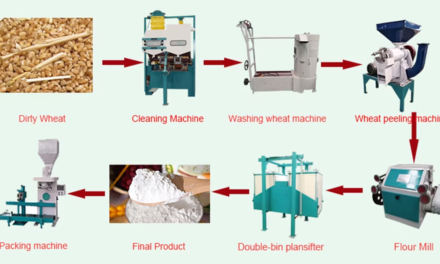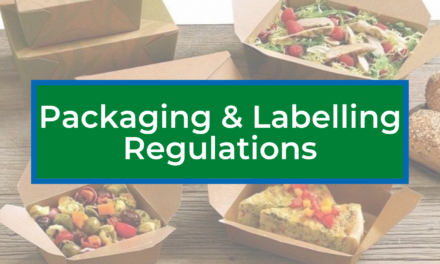Scaling up plant-based food production presents several challenges that manufacturers must address to meet growing consumer demand while maintaining quality, sustainability, and profitability. Key challenges include:
1. Ingredient Sourcing
- Challenge: Ensuring a reliable and sustainable supply of high-quality plant-based ingredients like pea protein, soy, and mycoprotein.
- Issues:
- Seasonal variability in crop yields affects consistency and availability.
- Competition for raw materials is increasing as plant-based demand increases globally.
- Environmental concerns like deforestation and water use are associated with certain crops.
2. Texture and Flavor Optimization
- Challenge: Achieving the taste and texture of traditional animal products on a large scale.
- Issues:
- Scaling texturization processes (e.g., extrusion) to maintain uniformity.
- High costs and technical complexity of replicating mouthfeel and flavors.
- Ingredient interactions may differ in large-scale formulations.
3. Cost Management
- Challenge: Making plant-based foods cost-competitive with traditional animal-based products.
- Issues:
- Higher costs for novel ingredients like algae or precision fermentation-derived proteins.
- Investment in specialized equipment and processes for large-scale production.
- Limited economies of scale compared to established meat or dairy industries.
4. Processing Technology Limitations
- Challenge: Adapting existing equipment or investing in new technologies for plant-based production.
- Issues:
- Specialized machinery for protein extraction, texturization, and emulsification is expensive.
- Retrofitting traditional food production facilities can be complex and costly.
- Ensuring process consistency and efficiency at scale.
5. Nutritional Profile Consistency
- Challenge: Ensuring nutritional equivalency or superiority to animal-based counterparts.
- Issues:
- Nutrient degradation during processing, particularly vitamins and minerals.
- Achieving desired protein content and digestibility while minimizing anti-nutritional factors.
6. Shelf Life and Preservation
- Challenge: Extending the shelf life of plant-based products without compromising clean-label claims.
- Issues:
- Avoiding synthetic preservatives while preventing spoilage.
- Managing oxidative rancidity in plant-based fats and oils.
- Maintaining sensory qualities over time in refrigerated or frozen conditions.
7. Scaling Production Sustainably
- Challenge: Balancing scalability with sustainability goals.
- Issues:
- High water and energy consumption during protein extraction processes.
- Managing waste and by-products in an environmentally friendly way.
- Meeting carbon-neutral or net-zero production targets.
8. Regulatory Compliance
- Challenge: Navigating varying regulations across global markets.
- Issues:
- Labeling requirements for plant-based products (e.g., “milk” or “meat” terminology).
- Compliance with food safety and allergen standards.
- Differing definitions of “natural” or “clean-label” ingredients.
9. Consumer Perception and Acceptance
- Challenge: Addressing consumer skepticism or resistance to plant-based alternatives.
- Issues:
- Overcoming taste and texture barriers for traditional meat eaters.
- Educating consumers about the health and sustainability benefits.
- Avoiding negative associations with processed or artificial ingredients.
10. Innovation and Competition
- Challenge: Staying competitive in a rapidly evolving market.
- Issues:
- Pressure to continuously innovate and improve products.
- Managing intellectual property for proprietary formulations and processes.
- Keeping up with new entrants and global competitors in the plant-based sector.
Strategies to Overcome Challenges
- Invest in R&D: Develop better flavor, texture, and nutritional profiles through advanced technologies like extrusion and fermentation.
- Build Strong Supply Chains: Partner with sustainable ingredient suppliers and invest in vertical integration.
- Enhance Collaboration: Work with industry peers, governments, and academia to address common challenges, such as regulatory hurdles or sustainability metrics.
- Adopt Advanced Technologies: Leverage AI, IoT, and blockchain for supply chain optimization, process monitoring, and traceability.
- Focus on Consumer Education: Highlight plant-based foods’ environmental and health benefits to drive acceptance.
By addressing these challenges, companies can scale up production efficiently while meeting the rising demand for plant-based alternatives.
Hashtags
#SustainableEating #GreenFoodChoices #HealthyPlanetHealthyYou #MeatlessMonday #EcoConsciousEating #SustainableLiving #FoodWasteReduction #ClimateFriendlyFood #PlantPowered #SustainableFarming #FoodInnovation #EcoFriendlyEats #SustainableDiet #MeatFreeMeals #EcoFriendlyChoices #SustainableSolutions #FoodSystemChange #SustainableConsumption #EcoFriendlyCooking #SustainableNutrition









